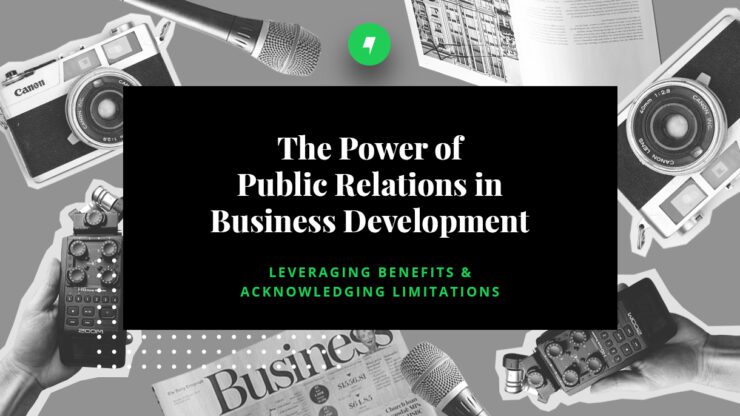The business development function in most companies typically sits comfortably in the sales and marketing department. Software such as Salesforce, Microsoft Dynamics 365, and Zoho CRM are a few of many software programs available to companies to support and enhance business development. We also function in a highly competitive and very loud business landscape today that requires a more comprehensive approach to business development that extends beyond the traditional sales and marketing. This is where public relations (PR) can play a vital role. PR not only enhances a company’s reputation, but it can also contribute significantly to its business development efforts. However, it’s essential to understand both the benefits and limitations of PR when it comes to driving business growth.
Where PR Best Supports Business Development
Building brand reputation. PR is THE tool when it comes to shaping and maintaining a company’s brand reputation. By effectively managing external communications and visibility opportunities, including media coverage, PR professionals can generate value brand awareness. A strong brand reputation can attract potential customers, investors, and business partners, providing a solid foundation for business growth.
Establishing thought leadership. Another vital role PR plays is establishing business leaders as industry thought leaders. Through media interviews, bylined articles, and speaking engagements, PR practitioners help a company showcase expertise and knowledge in a specific space. This type of positioning enhances credibility and fosters trust among target audiences.
Enhance client and customer relations. Effective PR strategies can further establish and nurture existing client or customer relationships. Communication channels like social media, email, and even community events allow brands to communicate directly with customers and offer opportunities to address concerns and create positive brand experiences. As a result, customers who are satisfied with the brand are more likely to become brand advocates, driving business through referrals, recommendations, and positive reviews.
Influence perceptions. PR practitioners are experts in strategic messaging and storytelling, ultimately helping a brand differentiate itself from competitors and positively positioning it in the mind of potential clients or customers. By managing public perceptions, PR can generate interest, drive demand, and create a sense of urgency for a brand.
The Limitations of PR in Business Development
Direct sales conversion. While PR efforts can generate brand awareness and positive associations, PR alone cannot directly drive sales conversions. The goal of public relations campaigns is to build positive relationships, influence perceptions, and generate interest. It is not to make a final sale.
Immediate results. Effective PR campaigns require time, effort, and resources to develop and implement. Building meaningful relationships with journalists and influencers, developing compelling content, and sharping and managing reputation is a process that takes time and long-term strategy. For brands that are looking for a quick sales growth, PR is not the most suitable marketing strategy.
Synergies between PR and Business Development
While PR has its limitation in directly driving sales, it complements the business development process by raising awareness of a brand and building a positive brand reputation, making it easier for the sales function to be successful. When PR and business development are integrated, results are amplified.
Successful brands know that both a strong PR and sales strategy are needed, and those that thoughtfully integrate the two experience the best results.
Posted In Public Relations
 Jessica Sharp
Jessica Sharp 